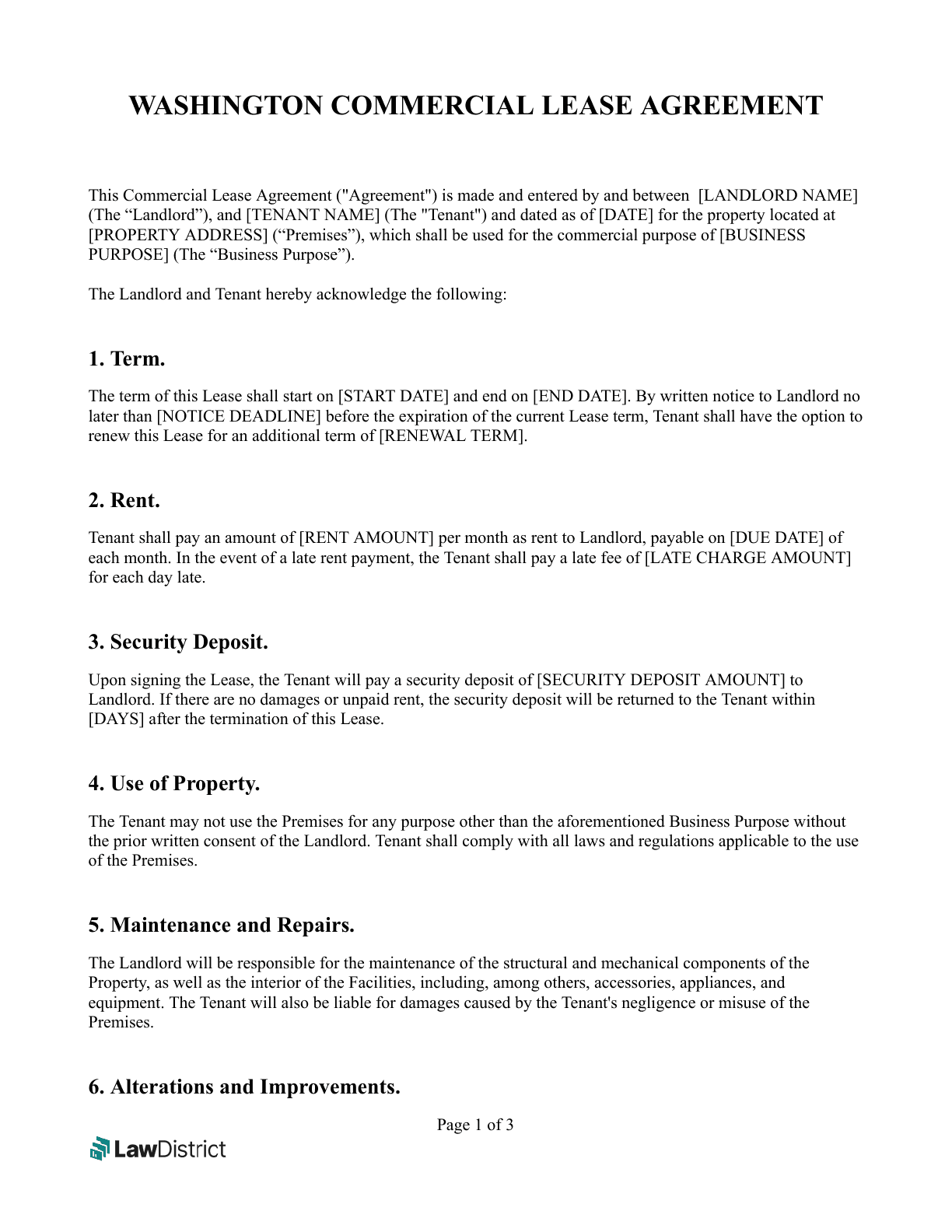Washington Commercial Lease Agreement Template
Washington Commercial Lease Agreements outline the terms for renting business spaces such as offices, retail stores, and warehouses across the state.
Similar to a residential lease agreement, these documents set out the rights and responsibilities of each party (the landlord and tenant), which helps prevent disputes.
There is specific guidance on lease terms, disclosures, and eviction procedures, which is set out by state law, and understanding these rules is key before signing any lease with a tenant.
Find out what you need to create this form and get a better understanding of what needs to be included in your document.

How a Washington Commercial Space Lease Agreement Works
Leasing a commercial space in Washington works differently from residential leasing. Commercial Leases are more flexible and less regulated.
Here’s what you should know:
- There’s no standard form. Each lease is negotiated between the parties.
- Lease terms are often longer (e.g., 3–5 years).
- Tenants usually handle more responsibilities, like property maintenance or improvements.
Required Disclosures for a Washington Commercial Lease Agreement
Washington state law does not require as many commercial lease disclosures as residential leases, but some key disclosures may apply:
- Hazardous materials: Landlords must inform tenants of any known hazardous substances like asbestos or lead-based paint, especially in older buildings.
- ADA compliance: If the property is open to the public, both you and the other party must guarantee the site meets Americans with Disabilities Act (ADA) standards. The lease should state who is responsible for following the rules.
- Restrictions and zoning: It’s common practice to disclose permitted uses of the space and local zoning restrictions.
- Common area rules: If necessary, you should include written rules for shared spaces like lobbies, elevators, or parking lots.
Rent Grace Period
There is no mandatory grace period for rent payments in Washington commercial leases.
Any grace period for late rent that is allowed must be clearly stated in the lease. If not mentioned, landlords may act immediately upon non-payment. These actions can include charging late fees or beginning eviction proceedings.
Washington Commercial Lease Security Deposits
Security deposits help protect you as a landlord from financial loss due to damages, unpaid rent, or breaches of the lease.
Here are some key Washington state guidelines:
- There is no limit on the amount of the deposit for commercial properties, meaning it is negotiable.
- The lease should specify where the deposit is held and what it covers.
- Washington law doesn’t specify a timeline for returning security deposits in commercial leases. It should be stated clearly in the agreement.
Helpful Resources
Washington commercial leases are governed primarily by contract law—not landlord-tenant statutes, which mostly apply to residential rentals.
Still, some laws and legal principles apply:
- RCW Title 62A (Uniform Commercial Code)
- RCW 59.12 (Unlawful Detainer): Covers the eviction process.